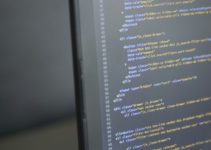Q: Regarding the integration of artificial intelligence in physics research, I inquire about the potential advancements that could arise from training a large language model on an extensive dataset comprising all existing physics papers, peer-reviewed articles, textbooks, and materials at both graduate and PhD levels. This comprehensive training could pave the way for the development of new theories in physics. Such an AI might have the capability to propose new experiments, thereby requiring humans to gather additional data through various means, including experiments involving light, prisms, glass, or mechanical systems. Additionally, envision a scenario where a facility equipped with advanced robotics and ample resources, akin to a stadium-sized warehouse, is established. In this setting, AI could autonomously conduct its own experiments using humanoid robotics and request further materials as needed. This discussion seeks to explore the feasibility and implications of automating physics research through AI, potentially transforming how scientific investigations are conducted.
A: The idea of leveraging a large language model, specifically trained on an exhaustive corpus of physics literature, to pioneer new theories and experiments in physics is both fascinating and complex. This approach could revolutionize the way we understand and expand the frontiers of physics in several ways:
Firstly, by digesting the vast amount of existing knowledge, such an AI could identify gaps in our understanding or connections between seemingly disparate areas of physics that human researchers might overlook. It could synthesize information across various subfields, proposing novel hypotheses or theories that integrate these diverse areas more cohesively.
Secondly, the AI could indeed suggest new experiments to test its theories. In a scenario where humans are involved, it would mean translating these suggestions into practical experiment designs, which researchers could then carry out in labs. This collaboration could speed up the process of scientific discovery by focusing human efforts on the most promising avenues identified by the AI.
Alternatively, in a more technologically advanced setup featuring a stadium-sized warehouse equipped with advanced robotics and a wide array of materials, the AI itself could conduct experiments. This autonomous system would not only design but also execute experiments, analyze the results, and refine its theories accordingly. Such a system would be a giant leap towards fully automated scientific research. It could work around the clock, potentially accelerating the pace of discovery at an unprecedented rate.
This automation of physics research would also necessitate sophisticated safety protocols and ethical guidelines, ensuring that experiments are conducted responsibly, especially when dealing with potentially hazardous materials or experiments that could have unforeseen consequences.
Moreover, the AI could publish its findings, adding to the body of knowledge and even participating in the peer review process, either as a submitter or a reviewer, further blurring the lines between human and machine roles in scientific research.
However, there are challenges and limitations to consider. The creation of truly novel theories and the interpretation of experimental results in ways that significantly advance our understanding of the universe might still require human intuition, creativity, and the ability to perceive context and significance in ways that AI currently cannot.
In conclusion, while the potential for AI to automate and innovate within physics research is immense, a hybrid approach that leverages the strengths of both AI and human researchers might be the most effective path forward. This collaborative synergy could usher in a new era of scientific discovery, where AI-driven insights and human ingenuity together solve some of the most perplexing mysteries of the universe.


